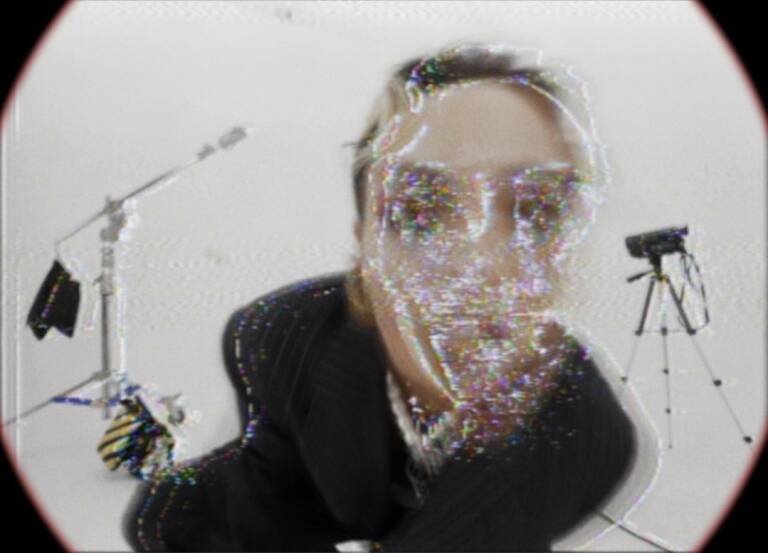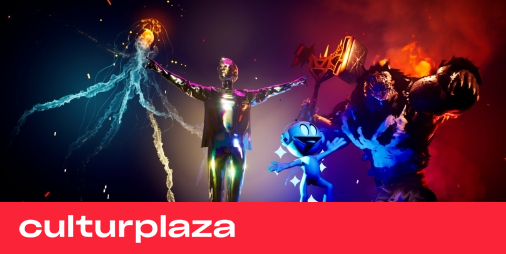VALENCIA. Experts say that, after the pandemic, a new happy twenty are coming. That after the confinement, a thirst for evasion and hedonism will prevail in society that will push us to the dance floors and free love. In Valencia we are prepared for it. The city has already lived at over 140 bpm. It was made for more than a decade, in a network of macro-discos that little can be said about new but there is never enough to name and put in a certain value. It began as post-punk, rock and avant-garde music, and ended with all aspects of electronic music, finally imposing trance and hardcore. With the arrival of the XXI century, the macro-clubs were closing and that scene seemed to disappear.
The reality is that no, structures and love for something or someone are not forgotten overnight. The music of the route became known under the label of remember, and went from the large venues to pubs and places in the city, in addition to the verbenera fee of each town patronal feast. Hardcore is still alive, although it has been associated with a generation that maintains its memory from a more experiential than music-loving nature.
In any case, this whole discourse has a but. Nothing is ever left to a single generation. And the arrival of the internet has confirmed that the new generations are capable of recovering and transforming absolutely any musical genre. Hardcore is not going to be less. Last February it was published Harlecore, the first long album by the British producer Danny L Harle, one of the electronic music gurus who was part of the first scene of PC Music. Harlecore it is pure machine music. It’s dirty and fast and makes you want to dance. An album purely happy hardcore that has shaken the scene and that opens a question (Raised by The Guardian): Can Danny L Harle reinvent hard dance for a new generation?
In Valencia, the new generations have already taken over from renewing the hardcore and trance scene before Harlecore, and there are a handful of proposals from young creators who are investigating about it. A movement that involves a double challenge: to advance one (or several) musical genres, and to challenge a whole sociology of hardcore rooted in the territory.
Vicente Alfonso is responsible for Valencia Radio Remember, an online station that programs DJ sessions and songs from the Destroy Route. He warns that the remember label itself can become derogatory: “the people who live the first route prefer to talk about nostalgia music or destroy music,” he explains. His project, like many others, is proof of the public that the music that sounded in the gambling dens in the 80s and 90s still has: “the route still has a huge audience, in fact, more than half of the radios that play music in Valencia they play this kind of music. What there are not are the maxidiscotecas of then to enjoy it ”.
Alfonso points out that “the music of the Route never left. There were stoppages, people who left and people who have returned ”. And although this task of recovery focuses on the nostalgia of listening to the great songs of that time, there is also an open door to prescribing archeology and to remixing old songs now to generate new content. In this sense, Alfonso, believes that “people have not fully understood that there are many styles of music and that none of them are on the wrong track. Nobody should be closed to any genre and no music is better. We must not forget what was before, but neither can we not move forward ”. Let’s move on then.
Dani soto he was playing techno at a party in Valencia when, at the end of his session, he decided to put on a eurobeat song. People found it strange but they didn’t take it badly. In summer, at a very long reunion party, he DJed for hours and once again dared to dust off his Eurobeat music folder. And his friends, who are barely in their 20s, reacted well again. At that party, where I was also Do good, the two decided to start a solo project to start researching and producing together under the name of Celestial Mechanics.
The project started then and throughout 2021 they will release their first songs. His bet is to renew a style of songs that “are beautiful, but they do not quite connect with the public today”, some songs from then that are difficult to play “because they have five minute breaks, and last a total of 12, and if you put that, people will go out to smoke ”. At the same time, there is also the idea of fighting against a certain puritanism of the techno scene and opening the range of music that sounds in Valencian clubs.
The approach of Crystals It comes from a point similar to that of Danny L Harle, hyperpop, happyhardcore and other genres that have grown on the internet. In his opinion, saying that hardcore is a thing of the past or labeling it as remember is “pure” because “it has been transformed into many other things such as industrial and frenchcore”. “Hardcore has always been present and now we are creating a new genre,” he says. This new sound does not owe more to those songs from the 90s like Rebecca Black and the hyperpop scene: “YouTube makes two scenes explode and they believe what’s out there now. Rebecca Black is hardcore waiting to be hardcore, and that’s where we are ”.
Krystales understands her work as a ritual: “I play hardcore because I want to create a sense of collective euphoria, and that is how I understand my sessions as a shared experience. The new type of hardcore is – more than a genre – a type of energy in which many other musical genres converge. A part belongs to that remember and that route, but many others do not ”.
In addition, he points out that its renewal also has a militant motivation: “As a queer person, I have never conceived the spaces in which the route was developed as safe spaces. PC Music and pop create that type of space and now the job is to recover that euphoria and what was lived then, but in queer spaces ”.
For him Harlecore It is an album that sums up “everything dirty and new that is being done on the internet”, a sample of a movement that is global and that transforms absolutely everything it touches. Hardcore is a small part of a movement that is more difficult to understand from musical labels than from viral phenomena and creative movements that involve many more disciplines.
Something similar thinks Turian Boy, producer and part of the collective label Vlex. For him, Harlecore brings that vision of “taking that hardcore imaginary out of the trunk but giving it a contribution by referencing many other types of music and removing that label of being somewhat tacky and banal, taking it to an underground terrain that contrasts it with purity”. “In addition, it is a very interesting album for the moment that we are living: it is the music that we needed to (at least) be able to hit the party dancing in our rooms,” he adds.
The approach of the people who make up Vlex also comes from very different places than the purest hardcore, essentially from hyperpop. Rave, EDM and many other individual references that add to a genre that they want as open as possible: “We are a generation that we consume all kinds of music. We like to merge and reference strange things: I like Rocío Jurado, my passion is the Beatles, and Charli XCX changed my life. All this mixing goes beyond what is known as remember music, and we have the right to make it our own and remove the label.

Will Valencia be one of the cardinal points of the new Machina music?
Question thrown, there is only one idea that crosses the three answers: the Valencian ear is made to this music. “I am from Santander and I have only lived in Valencia for about four years. These sounds are much more ingrained here than there. When I started playing Eurobeat, I thought they would call me crazy, but for now whenever I have played it, although it has sounded strange, it has been good ”, explains Dani Soto, who thinks that this genre can be a thread to pull to create a “Valencia sound” or a “Spain sound”: “techno is getting a bit laid back and I needed it”.
“I have the memory of a route that I have not lived, but that they told me and it was in my imagination since I was a teenager. Our musical education has prepared us for it ”, believes Turian Boy. For his part, Krystales believes that “there is space created for this music, but not physical. The public welcomes it, but if there were already few venues before the pandemic, now everything will be even more difficult ”. In the absence of physical space, either due to lack of cultural offer or restrictions, the movement has not stopped and online sessions and festivals have been organized that have put the accent on another essential leg of this renewal: its confluence on equal terms with the audiovisual and with the virtual space. If Valencia does not have clubs to return to being a nerve center, it could be as the origin of a good handful of artists.
– .

